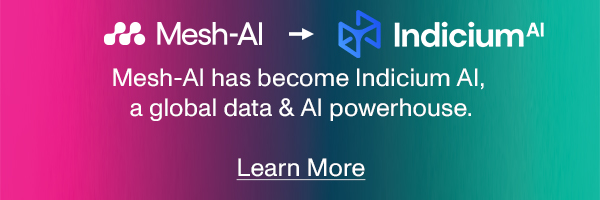

.png)
The energy sector is undergoing rapid transformation, shaped by decarbonisation, decentralisation, and digital innovation. Against this backdrop, the ability to bridge strategy and technology has never been more important. David Wing has spent his career helping energy companies — from incumbents to disruptors — navigate this shift, scale effectively, and deliver real innovation.
His experience spans consultancy, startups, and big tech and his focus has consistently been on using technology to accelerate change and create better outcomes for customers and the system as a whole. He brings a wealth of experience in the energy industry to Mesh-AI, so we sat down to gather his perspective on an ever shifting landscape.
Can you tell us a bit about your background and what you bring to the energy space?
I've worked across consultancy, startups, and big tech in the energy sector. At Baringa, I helped establish their footprint across B2C and B2B energy retail, advising major suppliers on strategy, propositions, and transformation. I then joined challenger supplier Tonik Energy, scaling the business and leading innovations like peer-to-peer trading, eventually becoming CTO with responsibility across retail and the home renewables business. Most recently, I spent three years at AWS, supporting energy clients globally. Across all roles, my focus has been using technology and strategy to drive change in the industry.
What’s the state of data in the energy sector right now?
It’s at a turning point. At a system level, energy is deeply interdependent — generators, retailers, and networks all rely on each other, but historically they haven’t shared data well. That’s starting to change, with initiatives like the UK’s Clean Power 2030 driving demand for digitalisation. But there’s still no one coordinating the big picture. That’s a gap — and an opportunity — for organisations like ours that can act as system-level data architects.
At the customer level, the growth of smart meters, EVs, batteries and heat pumps is producing a tidal wave of data — but most suppliers aren’t yet using it well. For instance, a huge number of EV, battery and heat pump owners are still on the wrong tariff - this is bad news for them and the market. Used properly, that data could be the key to creating smarter, cheaper, low-carbon experiences for consumers — and unlocking new value for suppliers and the grid.
What’s stopping customers from taking full advantage of low-carbon tech?
Two big things: visibility and complexity. Suppliers need to evolve their business models and often don’t have a shared view of their customers across their energy, assets like EVs, solar, or heat pumps, and lifestyle products like boiler care and insurance. This means they can’t offer the most relevant tariffs, services or propositions. And the customer journey — from discovery to install to integration — is still incredibly fragmented.
That’s where AI, especially Agentic AI, can help — by orchestrating the whole journey, removing friction, and guiding customers through complex decisions. We don’t need perfection; just getting 80-90% of the way there would be transformative.
There’s also an equity challenge and we have a massive fuel poverty issue in the UK. If we want a fair transition, we need to use data to understand who’s being left behind — and build propositions that work for social housing, rented homes, and people in fuel poverty. Only through genuine mass market adoption can we make a genuine difference to society and the environment.
Do customers actually care about net zero — or just their bills?
Most customers care about climate in principle, but they act based on primary need; in this case that is typically cost. That’s especially true for vulnerable or lower-income households, where reducing bills takes priority. Energy suppliers know this — and the smart ones are focusing on propositions that do both: save money and reduce carbon.
The good news is that those goals are increasingly aligned. If we can use data to personalise tariffs, automate optimisation, and guide behaviour — we can lower bills and emissions. That’s the win-win we should be aiming for.
We also need to push back on some of the political negativity around net zero. If we can use real data to show that clean energy is also cheaper and more secure, we can reframe the conversation.

Where do you see the biggest opportunities for Mesh-AI in the energy and utilities space?
The opportunity spans across the industry at every touch point – trading, networks, renewables etc, but for me the biggest opportunity is to use our data and AI pedigree to transform the energy retail experience.
Customers rightly now expect hyper personalised experiences, low friction contact, and data led decision making. At Mesh-AI we can support energy retailers in delivering upon this expectation, for example through data led propositions that leverage the opportunity that home renewable technologies provide, orchestrating customer 360, and utilising AI to streamline interactions.
We are also at a real market inflection point where fuel poverty and associated supplier debt books are soaring. There is a great opportunity here to bring data and AI tools to bear to help suppliers address these challenges, while helping the retailers address their opex challenges, increasing efficiency and building great places to work.
Lastly, what excites you most about joining Mesh-AI? What brought you here?
Excuse the pun, but the energy of the people here hooked me in. The teams are smart and passionate about the work they do and are mission driven. I believe this is a key ingredient in making real change for the industry. Secondly we are at a critical point of paradigm shift in the energy industry and believe that data and AI led solutions are key to making real, transformative change right across the industry. There are exciting times ahead if we can harness this change.
Find out how we're solving the energy enterprise's biggest challenges, and how we can help you.
